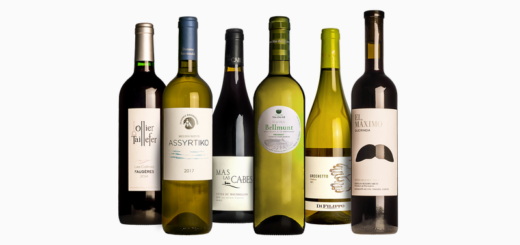Homesteading Revival
When the gravity of the current crisis began to set in, panic buying caused sudden shortages of household staples such as toilet paper and dried pasta. As the weeks have rolled on, a new trend has emerged. The baking aisles have been decimated. Living through a global pandemic has changed many aspects of how we are spending our time. For many, this has meant carving out new productive hobbies such as baking, sewing, preserving, fermenting or urban farming. Quarantine has ushered in a new wave of homesteading, as people strive to feel self-sufficient.

BBC Good Food has reported a huge surge in visits to the site. Last Sunday, it had over 7.8 million page views in one day — more than Christmas, Easter, and Pancake Day. Bread recipes have received particular interest. According to digital editor, Lily Barclay, the ‘How to Make Bread’ video is up 700% in the last two weeks. Social media has filled with photos of “isolation loaves” and “quarantine cookies.” The hashtag #quarantinebaking has thousands of posts on Instagram. Sourdough bread, which has always had a fanatical group of fans, is particularly having a moment. Even beloved British television presenter, Stephen Fry, is getting in on the action. Meanwhile flour and yeast are increasingly difficult to come by. Flourmills and wheat producers are rushing to ramp up production to meet this demand. For the people who are able to acquire the ingredients, baking offers a comforting distraction and a gratifying sense of accomplishment. It also helps build a sense of certainty and reassurance. Regardless of what is happening outside your kitchen, the foundational rules of baking still apply. As one interviewee of Eater describes, ‘If you cream butter and sugar, you get cookies. That’s one of those things that, no matter what happens in the news, will always be true.”
Last month Green Party Leader, Eamon Ryan, called upon the Irish nation to fill every south-facing window with salad greens. In doing so, he tapped into a mentality that was already quickly sweeping many countries around the world. Emboldened by the spirit of World War ‘Victory Gardens’, veg patches have sprung up in gardens across Ireland. Many garden centers have had to temporarily pause deliveries to cope with the sheer volume of backlogged orders they have accumulated. Gardeners have taken to social media to swap and share seeds in droves as they quickly sell out online. Also, according to the New York Times, ‘Americans have stress-bought all the baby chickens. Chick sales typically go up during tough times in the US like stock market downturns and in presidential election years. However, this time it has skyrocketed as people seek out a new hobby and a reliable source of eggs in their backyard. The Animal Crossing: New Horizons craze, a Nintendo release currently dominating the video game charts, is arguably even a virtual manifestation of people’s homesteading desires, as the play centers mostly around wholesome goals such as landscaping and fishing.
In order to address this uptake in DIY culture, celebrity chefs have launched full scale operations to help first-time cooks get on board. Many have offered recipes specific for store cupboard ingredients or offer social media hotlines for how to substitute ingredients. Jamie Oliver has launched his timely series Keep Cooking and Carry On. Diarmuid Gavin has begun nightly gardening Q&A sessions via Instagram Live. Woodies is sharing how-to videos for home improvement projects using the #WellMakeItTogether. This week, McDonald’s released its original recipe for the Sausage McMuffin, so people could try making it at home. Practically, these new hobbies are giving people structure to their day and providing themwith tangible outputs like a fresh loaf of bread or homegrown strawberries. However, emotionally they are serving a deeper role. At the heart of all this, people are gaining a sense of preparedness — that whatever the world throws at us — you can fend for yourself in some ways. What is making people feel good right now is a sense of control over their immediate environment and the influence they can exert with their own hands. Brands need to understand that their customers will emerge from this time with not only new skills, but a new approach to self-sufficiency. Be prepared with innovative ways to support them in this.




